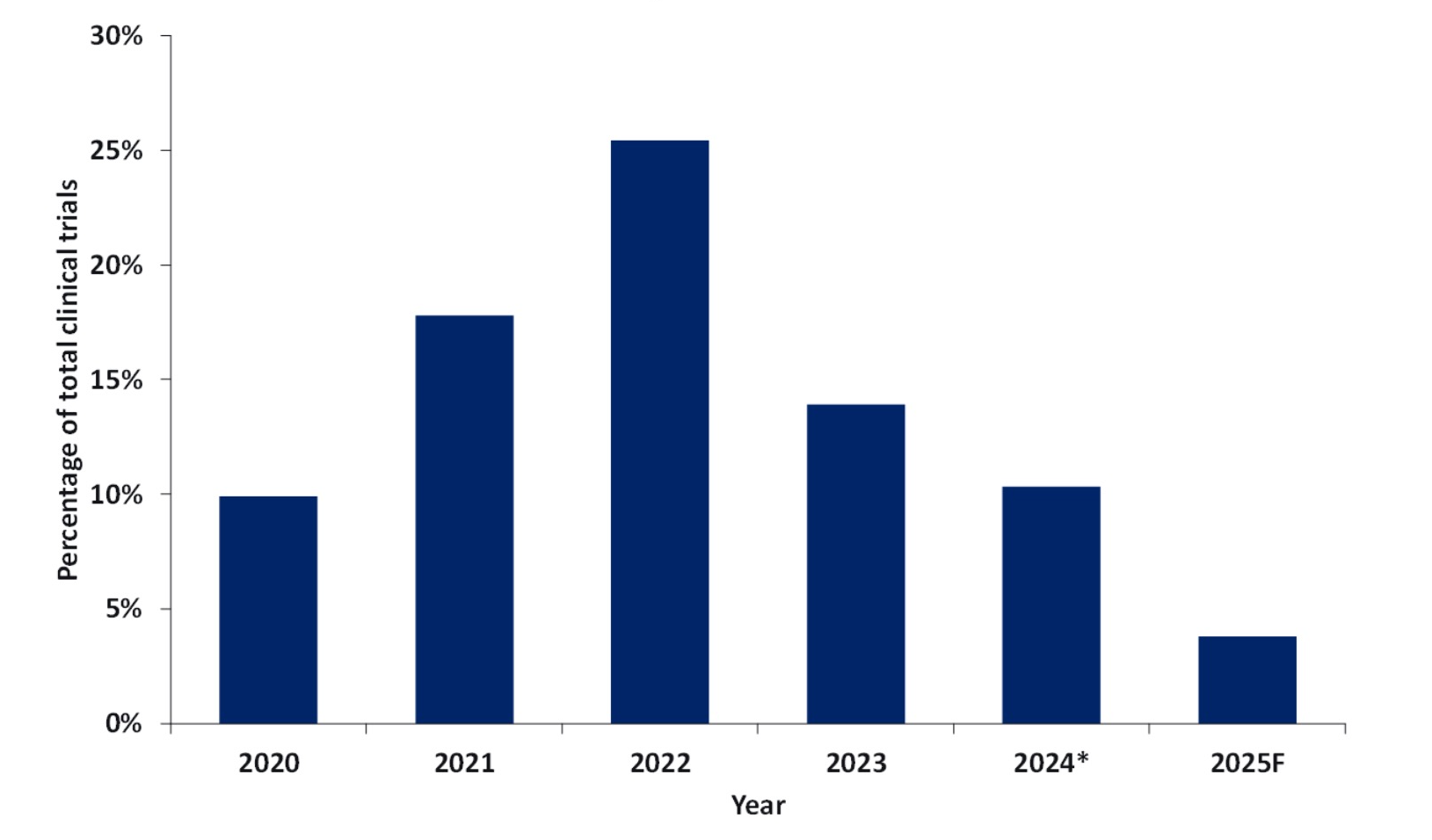In 2024, artificial intelligence (AI) continued to be shown as an invaluable tool with the potential to accelerate clinical trials and improve patient care and outcomes. AI has already proven its ability to identify and prioritise novel disease targets and aid in the discovery of novel drugs. Now, AI’s applications are being extended to include the management of clinical trials.
One major way AI is set to revolutionise clinical trials is by automating patient recruitment, which is typically the most time-consuming part of a clinical trial. AI is being utilised to find matching candidates in patient databases. Additionally, several large pharma companies such as Roche and AstraZeneca are already utilising large language models to generate optimized eligibility criteria.
Another significant application of AI in clinical trials is the management of trial data. This is becoming increasingly important since the amount of data points being collected is increasing exponentially as trial complexity evolves. AI is being applied to intelligently interpret data and automatically populate analytical reports, going as far as predictively adding in missing data points. It is also being used for real-time data monitoring, allowing anomalies and potential issues to be identified efficiently. These are some of the various ways that AI is addressing long-standing challenges afflicting the clinical trial process, but the opportunities presented by AI in clinical trials are only just beginning.
GlobalData’s clinical trials database shows that the number of clinical trials utilizing AI technology has increased yet again, showing 2024 as a record year. Additionally, 2025 is already looking set to continue the trend and break this record, as a significant number of trials are already planned (Figure 1, above).
However, patients appear to have ongoing concerns about the implementation of AI and what this means for them. A recent GlobalData survey of 574 patients from the US, France, Germany, Italy, Spain, the UK, Japan, Brazil, Canada, India, and Mexico was conducted from July 2023 to August 2023. It revealed that patients were most apprehensive about the lack of in-person interactions and possible medical errors when selecting the main concerns associated with healthcare professionals using AI in clinical practice. However, in the survey, the same patients identified faster healthcare delivery as the main benefit they associated with the implementation of AI in clinical practice. This shows that despite possible concerns, the industry and patient populations appear to be aligned in the belief that AI has the potential to power the future of healthcare provision.

US Tariffs are shifting - will you react or anticipate?
Don’t let policy changes catch you off guard. Stay proactive with real-time data and expert analysis.
By GlobalData





